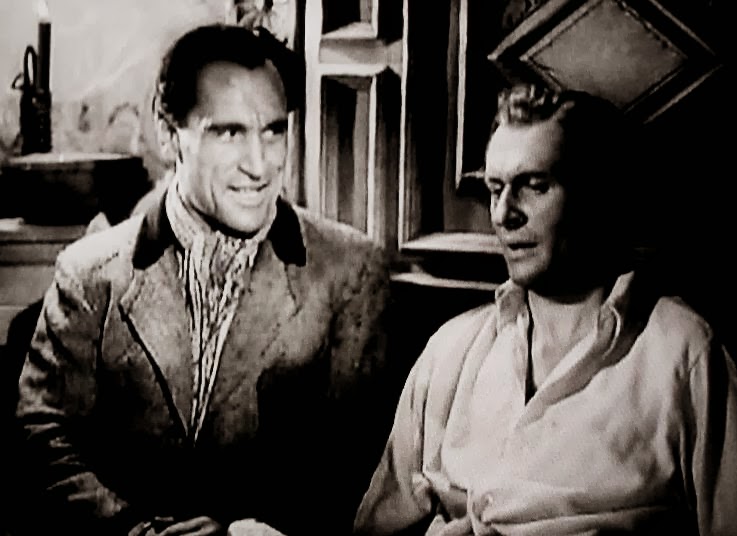 In 1864, the Matterhorn in the Alps has remained unconquered by climbers. Some villagers think that God wants to keep the mountain's secrets away from human eyes, but that doesn't stop men from trying. British alpinist Edward Whymper (Robert Douglas) tries that summer and asks famous guide Jean Antoine Carrel (Luis Trenker) to accompany him. There is tension between them until Whymper is caught in an avalanche and injured, and Carrel saves him. The two bond and Carrell encourages Whymper to return next year. But by then, problems arise, mostly involving nationalistic pride: Whymper wants to go up the Swiss side, but the Italians tell Carrell that the winning climb should come from the Italian side. When the Italian villagers deliberately thwart communication between Whymper and Carrell, they both lead separate expeditions up the mountain. Whymper gets there first, but tragedy strikes on the way down and four of the British climbers are killed. The villagers assume that Whymper cut their rope, but when Carrell goes looking for evidence, he finds that the rope was not cut but broke on its own. Can he get back to town before a lynch mob forms to punish Whymper?
In 1864, the Matterhorn in the Alps has remained unconquered by climbers. Some villagers think that God wants to keep the mountain's secrets away from human eyes, but that doesn't stop men from trying. British alpinist Edward Whymper (Robert Douglas) tries that summer and asks famous guide Jean Antoine Carrel (Luis Trenker) to accompany him. There is tension between them until Whymper is caught in an avalanche and injured, and Carrel saves him. The two bond and Carrell encourages Whymper to return next year. But by then, problems arise, mostly involving nationalistic pride: Whymper wants to go up the Swiss side, but the Italians tell Carrell that the winning climb should come from the Italian side. When the Italian villagers deliberately thwart communication between Whymper and Carrell, they both lead separate expeditions up the mountain. Whymper gets there first, but tragedy strikes on the way down and four of the British climbers are killed. The villagers assume that Whymper cut their rope, but when Carrell goes looking for evidence, he finds that the rope was not cut but broke on its own. Can he get back to town before a lynch mob forms to punish Whymper?This film, based on real events, feels like an attempt by the British to make their own "mountain movie," a genre that belonged to the Germans—propaganda filmmaker Leni Riefenstahl worked in this genre before she made TRIUMPH OF THE WILL. The scenes on the mountains were directed by Trenker who was in the German HOLY MOUNTAIN with Riefenstahl, and they are fairly good sequences, especially the death fall of the four climbers. The rest of the movie is interesting enough to sit through, though the dramatic tension could use some juicing up. The characters played by Douglas and Trenker (pictured above, Trenker at left), though based on real people, aren't particularly rounded, and their acting is so-so; Trenker especially seems uncomfortable delivering dialogue in English. In fact, much of the story feels like an outline of events rather than a fleshed-out narrative. Favorite line, from one villager to another: "Stir yourself, stir yourself—if you'll pardon the vulgarity." [TCM]

No comments:
Post a Comment